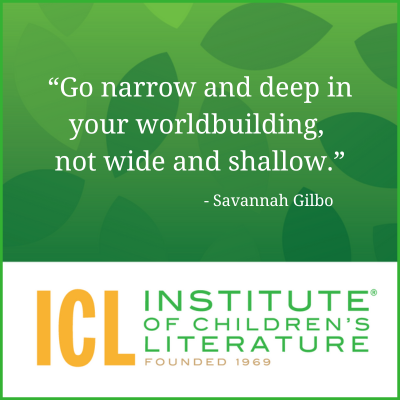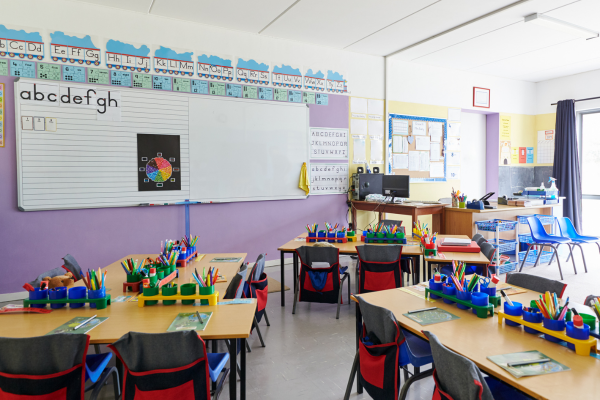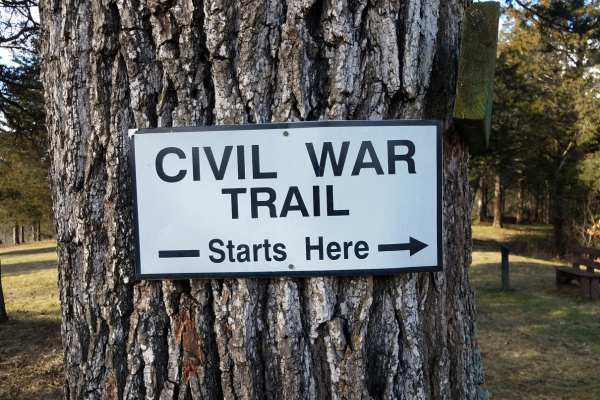
5 Ways Writers Can Prep for 2025 Goal Setting
Before we roll on to the new writing year, let’s harness our optimism for the blank slate before us and prepare for our 2025 Goal Setting just for writers.

Worldbuilding is the process of making decisions about setting and systems for a story. For many writers, worldbuilding is one of the most entertaining and time-consuming parts of the process. This is especially true of writers of fantasy and science fiction.

This kind of attention to detail can take years. It became something of an obsession for Tolkien. Obviously, it was a project he loved, but no one could argue it was an efficient part of worldbuilding. Most of us do not have the time to get into worldbuilding quite so deeply.
To avoid falling so far into worldbuilding that you can’t find your way out, consider the following four tips and make your choices wisely.
You will need to know more to create a complete fantasy setting or one set in the future than one set in the present day. For fantastical books, you may need to think about political systems or cultures that don’t exist in the real world. You will need to think about how the decisions you make about the physical world of your story can affect the way people think and interact. The world around us affects our fears, our work, and the things we do for fun. It will work the same way in your story. So, you must decide what you need to know to make these things work together smoothly.

Even though you will need to do some worldbuilding for every story you write, the scope of the worldbuilding can vary, so it is good to know exactly how much you need to know. What sorts of things will affect the characters and plot within the time frame of your story?
For example, in the real world, changes in technology are interesting and important. However, in a story set during a single overnight camping trip, you only need to think about the technology used during the trip. You probably won’t need to decide whether the characters have electric heat or an oil furnace at home, even though that is part of the same world as the characters live. By giving thought to the scope of your story, you can keep the worldbuilding you do both useful and more efficient.
Worldbuilding is meant to enhance your story, not distract from it or make it more confusing. Therefore, good worldbuilding always keeps your plot and your characters in mind. For instance, if your plot involves characters on an adventure, your worldbuilding will include putting potentially risky options into your world. If you imagined a world where everything is easy and pleasant, it may be difficult to come up with enough challenges for your characters to overcome.

For example, you may have a small town where the largest local business is struggling. This can apply pressure on the family when one of the parents in the story loses a job. The stress may make the adults struggle to get along. It may make the adults pass the worry along to the children, either intentionally or accidentally. Then you can have the story show the family working through the problem, showing that family relationships can be challenging but giving hope as well. Even in difficult circumstances, most stories for children and YA readers have a thread of hope. Worldbuilding isn’t the only tool that will echo your theme, but it is one important one.
Writers learn so much from reading. Reading for fun and reading as a research tool help writers write better. One of the most wonderful things about writing as a profession is that something we do for pure enjoyment can help us improve our work.

Ask yourself why the author made certain worldbuilding choices and study how the choice affects other elements of the story.
Make lists of the kinds of worldbuilding choices you find and ask yourself if you need to make similar choices.
In some books, you may discover worldbuilding choices that do not work well with the story and art, either confusing or slowing the story down. These examples illustrate why your worldbuilding choices need to be well thought out. You can learn from good and bad choices in the reading you do.
This is especially important if the world of your story is very different from the real world. For example, if you intend to write a story set in space, reading books whose stories are set in space can help you see the scope of choices different authors make about technology, human interactions, and the forces that drive behavior.
One such choice might be why the characters are in space. Humans may have been driven to space by climate change. Humans may have been sent to space as a way to expand human knowledge. Humans may be in space to do a job that offers a profit for the people who sent them. Your story will face a similar need for a choice that drives each element of the story.
You also need to be certain your choices make sense or don’t create unsolvable problems for the rest of the story. For example, if the humans were sent into space because a plague has wiped out nearly all of humanity, then what is keeping the plague from killing the people in the spaceship? If you decide it is because people on Earth found a cure for the plague, then why aren’t the people on the ship staying on Earth to help rebuild?
Always be certain your choices are logical and logically work with the characters’ actions in the story. Otherwise, you’ll need to do a lot of rewriting when you get editor feedback or when you only receive rejections for the story.
The real world may be the first place you want to look for help in your worldbuilding. Even if you are building a fantasy world, it is helpful to study how things work in the real world (or perhaps how things worked at some point in the past). Perhaps you create a story where landowners are the rulers of the world. That choice will become easier to imagine and create if you study how feudalism worked in the past. If you want to write a story set in a modern classroom, you may want to take time to see what is true of the technology in a modern classroom. You may also know how most teachers handle things like discussion, safety, and discipline today.

Studying the real world when doing your worldbuilding can also help you make choices that are logical and don’t create unworkable situations for your writing. For example, if you are writing a story set during the Civil War, you will want to research the Civil War time period so you don’t have characters doing or saying things that would have been impossible in that time. You won’t have families interacting in unrealistic ways.
If you are writing a story set in Europe before the invention of the wheel, research into things like geography, the environment, and even how far people can walk comfortably will keep you from having people crossing unrealistic distances in a short amount of time. These kinds of mistakes can lead to time-consuming rewrites down the road. Also, doing your writing from a place of being well-informed about the real world can make your writing smoother and faster as you can be more confident about the worldbuilding choices you make.
Worldbuilding is an enjoyable challenge, but thinking through what you need from it and what you need to know to accomplish it in a logical way will keep you from falling down worldbuilding rabbit holes and make your writing better and more efficient.
With over 100 books in publication, Jan Fields writes both chapter books for children and mystery novels for adults. She’s also known for a variety of experiences teaching writing, from one session SCBWI events to lengthier Highlights Foundation workshops to these blog posts for the Institute of Children’s Literature. As a former ICL instructor, Jan enjoys equipping writers for success in whatever way she can.

Before we roll on to the new writing year, let’s harness our optimism for the blank slate before us and prepare for our 2025 Goal Setting just for writers.

Writers can be thin-skinned when it comes to getting feedback on their work. Let’s look at 4 ways to positively deal with constructive criticism!

Rejection is part of the territory when it comes to being a writer. Today we offer reflection for writers to help redirect your efforts after a rejection.
1000 N. West Street #1200, Wilmington, DE 19801
© 2024 Direct Learning Systems, Inc. All rights reserved.
1000 N. West Street #1200, Wilmington, DE 19801
© 2024 Direct Learning Systems, Inc. All rights reserved.
1000 N. West Street #1200, Wilmington, DE 19801
© 2024 Direct Learning Systems, Inc. All rights reserved.
1000 N. West Street #1200, Wilmington, DE 19801
© 2024 Direct Learning Systems, Inc. All rights reserved.

1000 N. West Street #1200, Wilmington, DE 19801
© 2025 Direct Learning Systems, Inc. All rights reserved.

1000 N. West Street #1200, Wilmington, DE 19801
©2025 Direct Learning Systems, Inc. All rights reserved. Privacy Policy.
1 Comment